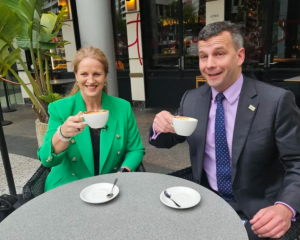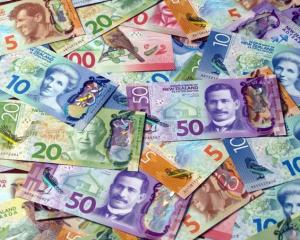Claims by businesses that the July 1 start to the emissions trading scheme could hinder a fragile economic recovery appear to have fallen on deaf ears.
Otago Chamber of Commerce chief executive John Christie said there was a "real lack of understanding by business" about the implications of the emissions trading scheme (ETS), and he believed its introduction should be delayed.
Mr Christie said the economy was too fragile to be lumbered with an estimated $255 million in extra costs from the ETS in the coming year, evident by surveys last week by his own chamber and the NZIER quarterly business opinion survey, which both described the recovery as fragile.
"It is a very difficult time for business," he said.
Mr Christie said his view was supported by the New Zealand Chamber of Commerce and a consortium of other business organisations.
But Climate Change Minister Nick Smith told Radio New Zealand the introduction of the ETS, designed to slow global warming by making polluters account for their greenhouse gas emissions, would go ahead as planned.
Mr Smith has tried to placate critics by pointing to a scheduled review of the scheme next year, which could see changes if key trading partners Australia, United States, Japan and Europe failed to make progress addressing their greenhouse gas emissions.
The Government has also made concessions, such as halving its initial obligation and imposing a $25-a-tonne carbon price cap.
Despite this, stationary energy, fossil fuel and industrial process industries will have to start accounting for their greenhouse gas emissions from July 1.
Fonterra announced last month the scheme would cost it an extra $25 million a year and more in subsequent years, despite savings made in the past five years..
Savings included reducing by 34% the energy used per tonne of milk powder produced which removed the equivalent of 300,000 tonnes of carbon dioxide pollution, mainly from transport efficiencies.
It also recycles 90% of its waste.
The Ministry for the Environment estimates that including the stationary energy, liquid fossil fuels and industrial process sectors, the ETS will increase electricity prices 5% and fuel 3.5c a litre.
The cumulative cost to an average household was estimated at $165 a year.
Treasury on Friday released the Government's finances for the eight months to the end of February, which revealed a smaller-than-expected deficit.
The operating balance excluding gains and losses, which strips out unrealistic investment gains and losses, was a deficit of $4.49 billion, 11.2% better than forecast in December.
Treasury attributed the improvement to Government expenses 2.2% lower than forecast, while revenue fell 0.9% due to weaker-than-expected corporate taxes.
That was countered by slightly higher revenue from GST.
But last week's NZIER quarterly survey on business opinion described the economic recovery as shallow, and the BNZ last week said while 2010 would be better than 2009, risks remained and "the expected expansion should be seen as fragile".












